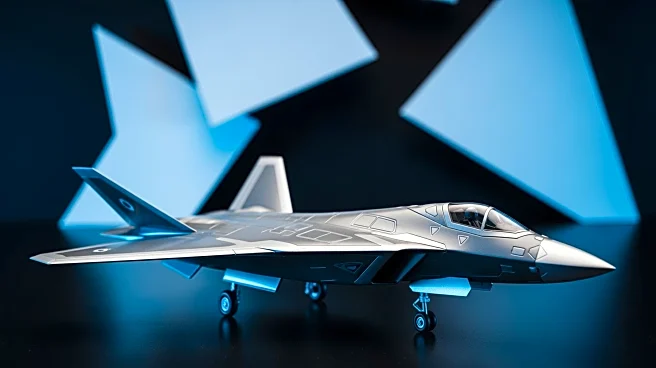What's Happening?
On November 18, President Trump and Saudi Crown Prince Mohammed bin Salman finalized a series of agreements to deepen the U.S.-Saudi strategic partnership. This includes the U.S.-Saudi Strategic Defense Agreement, which aims to reinforce regional stability
through arms sales. A significant part of this agreement is the sale of F-35 stealth fighters to Saudi Arabia, marking a major policy shift as Washington had previously been reluctant to export these jets to Arab states. The deal, described as the largest defense cooperation agreement in U.S. history, includes a $142-billion arms package. Concerns have been raised about the strategic balance in relation to Israel, which is currently the only F-35 operator in the Middle East. The Israeli Air Force has voiced opposition to the proposed Saudi F-35 deal, citing potential erosion of Israel's air superiority.
Why It's Important?
The sale of F-35s to Saudi Arabia could significantly alter the airpower balance in the Middle East, impacting regional security dynamics. Israel's qualitative military edge, a cornerstone of U.S. policy in the region, could be challenged by this sale. The deal also underscores the deepening U.S.-Saudi strategic partnership, which has implications for U.S. foreign policy and defense strategy in the Middle East. Additionally, the agreement could bolster the U.S. defense industrial base, as Saudi Arabia continues to be a major customer of American weapons. However, the deal faces potential hurdles, including Congressional approval and concerns over human rights issues, particularly following the 2018 murder of journalist Jamal Khashoggi.
What's Next?
The sale of F-35s to Saudi Arabia requires Congressional approval, which could be influenced by powerful Israeli support in Washington. The Israeli government is reportedly not opposed to the sale in principle, provided it is conditioned on Saudi Arabia joining the Abraham Accords, which aim to normalize diplomatic relations between Israel and Arab states. The deal could also face challenges related to protecting sensitive F-35 technologies from espionage, particularly from China, given Saudi Arabia's growing relationship with Beijing. If finalized, the delivery of F-35s to Saudi Arabia is expected to take at least seven years.
Beyond the Headlines
The potential sale of F-35s to Saudi Arabia highlights broader geopolitical shifts in the Middle East, including thawing relations between Saudi Arabia and Israel. The deal could pave the way for similar agreements with other Arab states, potentially reshaping regional alliances. Additionally, the integration of Saudi F-35s into regional defense strategies could enhance U.S. intelligence capabilities, as the jets are known for their advanced data collection and sharing capabilities. This could support U.S. efforts to monitor regional adversaries while reducing its military presence in the Middle East.















